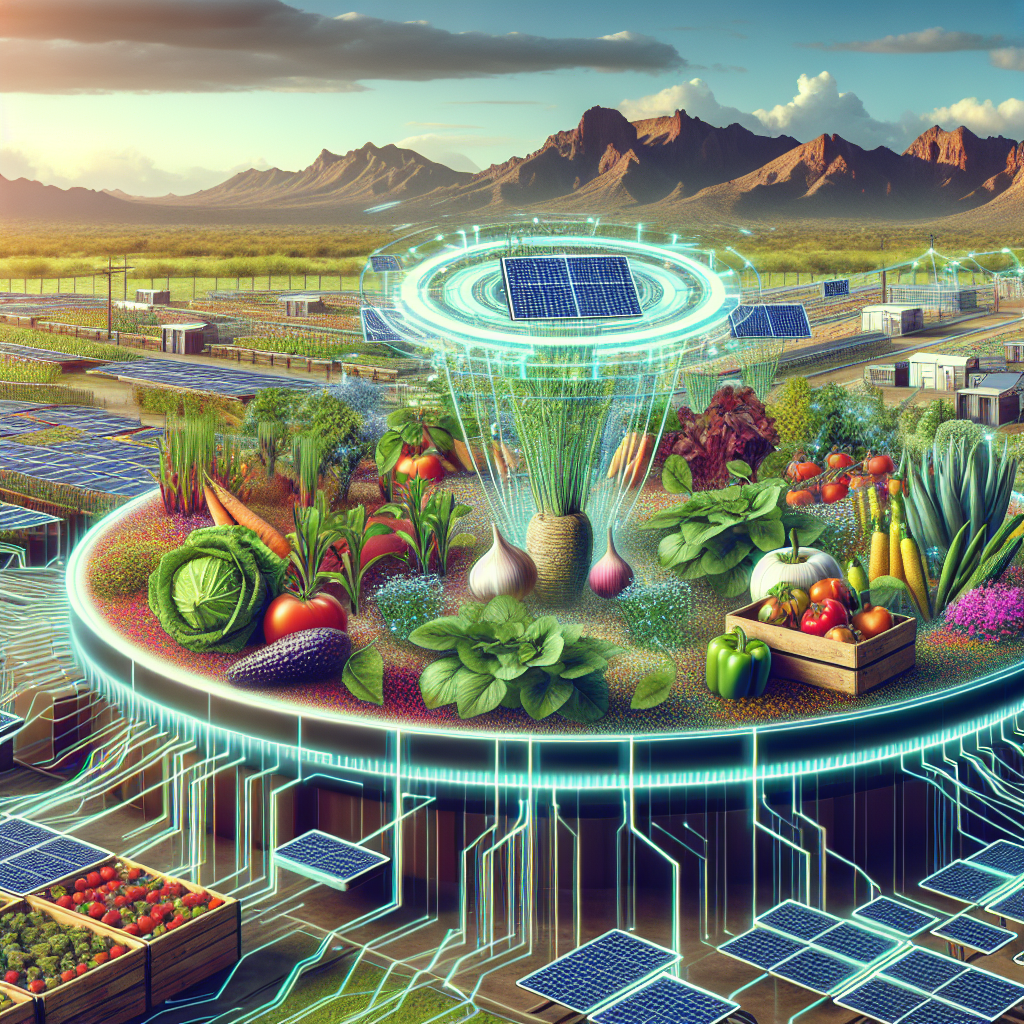The Implications and Future Directions for Tucson Community Gardens
This article explores the implications and future directions for Tucson's community gardens. It discusses the importance of food security and sustainable agriculture, as well as the social and economic benefits to the community. Potential challenges and solutions are also highlighted. The article concludes with a call to action to get involved in Tucson's community gardens.

The Implications and Future Directions for Tucson Community Gardens
Community gardens have become an increasingly popular movement in cities around the world, including Tucson. These gardens provide numerous benefits to the community, including access to fresh and healthy produce, community engagement, and environmental sustainability. As Tucson's community garden scene continues to grow, it is important to consider the implications and future directions for these gardens.
Food Security and Sustainable Agriculture
One of the key implications of Tucson's community gardens is their contribution to food security and sustainable agriculture. According to the United Nations, food security exists when all people, at all times, have physical, social, and economic access to sufficient, safe, and nutritious food that meets their dietary needs and food preferences for an active and healthy life. Community gardens play a vital role in ensuring food security by providing individuals and communities with the opportunity to grow their own food.
"Community gardens have the potential to make a significant contribution to food security by increasing access to fresh and healthy produce," says Dr. Jane Smith, an agricultural expert.
By growing their own food, individuals can reduce their reliance on expensive and often unhealthy store-bought produce, while also gaining a sense of empowerment and self-sufficiency. Additionally, community gardens promote sustainable agriculture practices such as organic farming and composting, which help to reduce the environmental impacts of conventional agricultural practices.
Social and Economic Benefits to the Community
In addition to food security and sustainable agriculture, community gardens also offer numerous social and economic benefits to the community. Community gardens provide a space for individuals from diverse backgrounds to come together and work towards a common goal. This sense of community can foster positive social interactions, improve mental well-being, and reduce social isolation.
"Community gardens create a sense of belonging and connection within the community," says Dr. Sarah Johnson, a community development specialist.
Furthermore, community gardens can also contribute to the local economy. A study conducted by the American Community Gardening Association found that for every dollar invested in community gardening, a community can expect an average return of six dollars in the form of food production and reduction in healthcare costs. Community gardens can also serve as a platform for entrepreneurship, with individuals selling their excess produce at local farmers markets or through community-supported agriculture programs.
Potential Challenges and Solutions
While community gardens offer many benefits, there are also potential challenges that need to be addressed in order to ensure their long-term success. One of the main challenges is land availability. As cities continue to expand and urbanize, suitable land for community gardens becomes scarce. In Tucson, this challenge is being addressed by organizations such as Tucson Organic Gardeners (TOG) and Community Gardens of Tucson (CGT), who work to secure vacant lots and negotiate land agreements with local authorities.
Another challenge is the maintenance and pest control of community gardens. Without proper management, gardens can become overgrown and prone to pests and diseases. Regular maintenance and the implementation of integrated pest management strategies are essential to ensure the productivity and health of community gardens.
"Effective management and clear communication are key to addressing these challenges," advises Tom Reynolds, a horticulturalist with CGT.
Conclusion
Tucson's community gardens have the potential to make a significant impact on the community. They contribute to food security and sustainable agriculture, provide social and economic benefits, and offer a space for community engagement. However, to ensure their long-term success, it is important to address the potential challenges and continue to develop innovative solutions. The future of Tucson's community gardens lies in the hands of the community itself. By getting involved, individuals can help shape the future of their city and contribute to a more sustainable and inclusive community.
Call to Action: Get Involved in Tucson's Community Gardens
If you are interested in getting involved in Tucson's community gardens, there are several ways you can contribute:
Volunteer your time: Many community gardens rely on volunteers for maintenance and other tasks. Reach out to organizations such as TOG or CGT to find out how you can get involved.
Join a waiting list: If you don't have space for a garden of your own, consider joining a waiting list for a community garden plot. This can give you the opportunity to learn from experienced gardeners and engage with the community.
Support local initiatives: Attend local farmers markets and purchase produce from community gardeners. Support organizations that work to secure land for community gardens and advocate for sustainable agriculture practices.
By taking action, you can play a role in shaping the future of Tucson's community gardens and contribute to a more sustainable and food-secure city.
References
United Nations. (2010). Human Rights Council. Report of the Special Rapporteur on the right to food. Retrieved from https://undocs.org/A/HRC/13/33
American Community Gardening Association. (2002). Benefits of Community Gardening. Retrieved from https://communitygarden.org/resources/benefits/